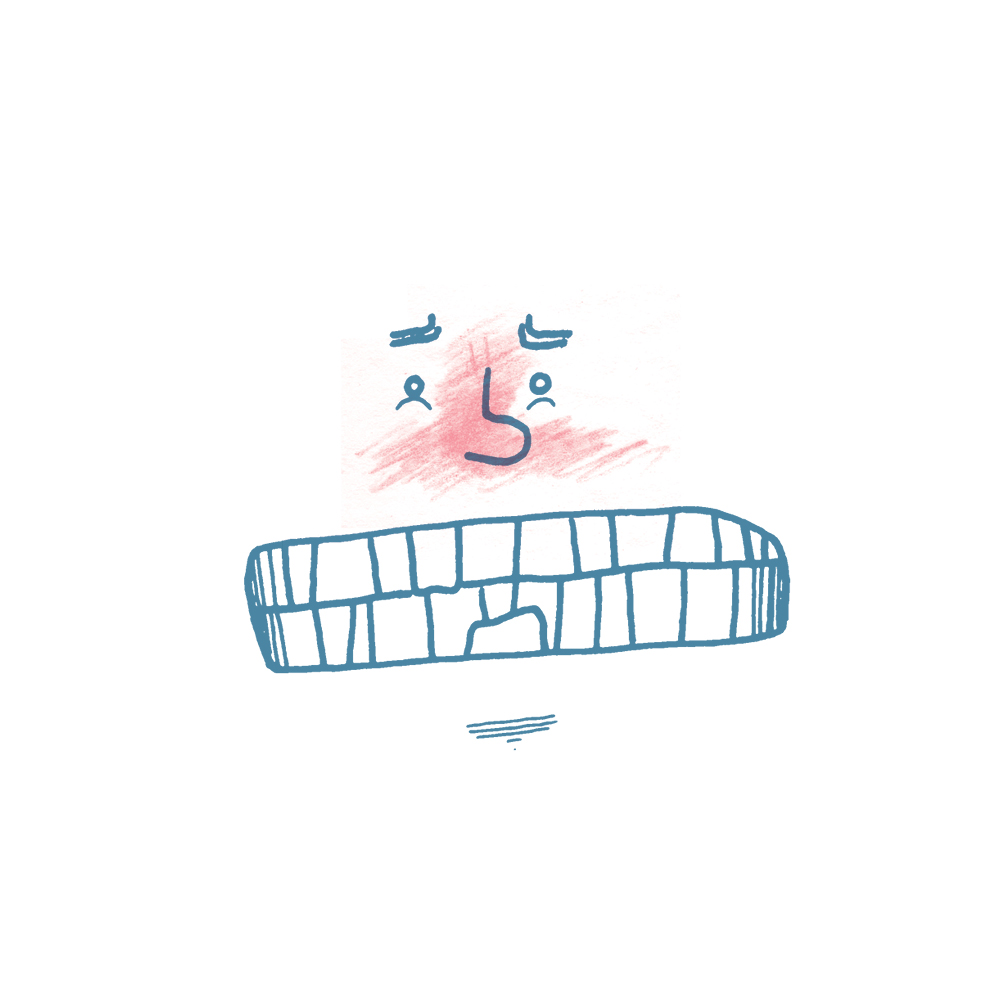Are you Working Too Hard Without Knowing It?
Fine! You are a busy person, and you want to get ahead. Hard work doesn’t scare you. You aren’t a bit lazy. This is all well and good – but are you doing needless work, wearing yourself out by using power you don’t need and which gets you nowhere?
Tense people are like that. Literally, they overpower themselves. And at the end of a day, they are “done in” – tired out, not by their regular work, but by the excess energy they have wasted in doing it.
Right now you are reading, and nothing seems simpler than that. You are using only the muscles of your eyes. But wait a minute! Does your throat feel a bit taut? Are your lips moving faintly? Possibly you are trying to “say” the words to yourself as you read, calling into action nerves and muscles which aren’t needed. Going a step or two further, you may be holding this booklet in a manner which calls for excess muscular exertion. You may be standing when you could sit. You may be reading in a poor light, with causes extra effort for your eyes. And then again, you may be fidgeting, tapping with your fingers or feed, toying with a cigarette or key chain.
Now these are all little things. Still, they put nerves and muscles to work which ought to be at rest. And they are multiplied by the hundred during the course of the day.
Tension? It is simply the contraction of a muscle, motivated by a nerve. Over-tension? It is simply too many muscle contractions, caused by over-active nerves. A tense, nervous or high-strung person? They are simply one who needlessly works their nerves and muscles.
The calm person conserves power. They employ no more than they need to perform efficiently in any activity. They practice economy in the management of their body, and of their mind.
The mental side of the picture counts most in relaxing. For the capitol of your body is in your head. Here your private government sits and controls your affairs. From you brain come the orders to your nerves and muscles. A jittery mental government flashing jittery orders makes for jittery nerves – and a jittery person.
You may be lying down, presumably in a state of complete bodily rest. But still you may be tense, drawn tight by the contraction of muscles which were stirred up in you mind.
Dr. Edmund Jacobson of the University of Chicago has made some remarkable tests. By connecting electrical instruments to the muscles of patients who were lying down with their eyes closed, he was able to measure the activity of their muscles caused by the mere process of thinking or imagining!
If they were told to visualize an object, such as a building, tension was noted in the muscles of their eyes, as though they were actually viewing the structure. If they were told to imagine that they were counting or reciting, tension was noted in the tongue, lips and throat, as though they were actually talking aloud. If they imaged that they were lifting a weight, the muscles of their arms became tense with the effort, and so on.
So you see that you can do needless work by thinking unnecessary thoughts and imagining unnecessary activities.
Economize. Don’t waste your power, don’t waste your thoughts! This is the essence of relaxing.
What are waste thoughts? Mark them down as worrisome thoughts, hateful thoughts, suspicious thoughts, envious thoughts, jealous thoughts. And see what they do to you.
Let’s suppose that you are lazily wretched out in the hammock at home, resting up from a hard week’s work. Relaxing – that’s word.
“Don’t disturb him,” says your wife. “He’s all tired out, poor guy. Leave him alone!”
The trouble is you aren’t leaving yourself alone and might be better off if someone else disturbed you. For in the theatre of your mind, you may be staging mighty dreams: a love story, scenes of infidelity and revenge; a tragedy, in which you lose your job and go hungry; a melodrama, compete with an H-bomb; a short story subject called “An Encounter With The Boss”; a newsreel showing the funeral of a rival you envy.
Sure, it’s all mental. You are just thinking, worrying, suspecting, imagining. All mental. Or is it?
Not quite. The words you imagine you are saying, the fights you imagine you are waging, the blows you imagine you are giving and receiving – all these thoughts are tensing up the nerves and muscles of your body. To be sure, these activities are not actually happening. Yet on a small scale, your body is enacting them. Your mental workout is a physical workout too.
It is all effort. It is al futile. And right here we reach the whole secret of relaxing: stop giving yourself need-less work.
Spare your body and your mind. Be good to yourself. That is what it means to relax.













